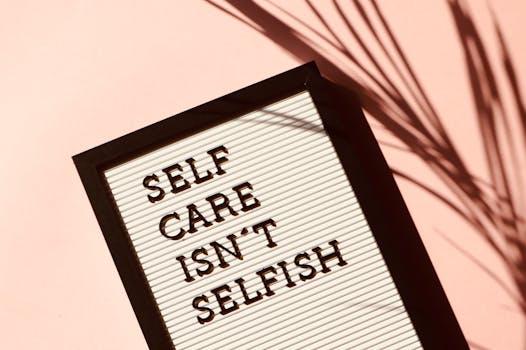Jamie Lee
03 Mar 2025
142
Judge extends block on Trump gender-affirming care federal funding ban - The Hill
Key Background on Jamie Reynolds: Judge extends block on Trump gender-affirming care federal funding ban - The Hill
Jamie Reynolds, a trans activist, has been at the forefront of the legal battle against the Trump administration's ban on federal funding for gender-affirming care. Reynolds, along with other activists and organizations, has been advocating for the protection of transgender rights and access to necessary healthcare services.
Reynolds' efforts gained significant attention when a federal judge granted an extension on the preliminary injunction blocking the enforcement of the Trump-era policy. This ruling was a crucial win for Reynolds and the transgender community, as it halted the discriminatory ban that would have deprived transgender individuals of essential medical treatments.
The case involving Reynolds underscores the ongoing challenges faced by the transgender community in the United States. Discriminatory policies and stigmatization often impede access to healthcare services for transgender individuals, leading to adverse health outcomes and exacerbating existing health disparities.
Implications of the Judge's Decision
The extension of the block on the Trump administration's ban on gender-affirming care federal funding has significant implications for transgender individuals across the country. By preventing the implementation of this discriminatory policy, the court's decision ensures that transgender individuals can continue to access medically necessary treatments without unnecessary barriers.
Moreover, the judge's ruling sends a powerful message about upholding the rights and dignity of transgender individuals. It reaffirms the principle that healthcare should be inclusive and nondiscriminatory, regardless of an individual's gender identity. This decision sets a crucial precedent for future cases involving transgender rights and healthcare access.
Experts in transgender healthcare have lauded the judge's decision, emphasizing the importance of ensuring that transgender individuals receive the care they need to live healthy and fulfilling lives. The ruling recognizes the medical necessity of gender-affirming treatments and prioritizes the well-being of transgender patients.
Challenges and Progress in Transgender Healthcare
Despite this significant legal victory, challenges persist in ensuring equitable access to healthcare for transgender individuals. Systemic barriers, including discrimination, lack of provider knowledge, and limited insurance coverage, continue to hinder access to gender-affirming care.
Advocates like Jamie Reynolds are working tirelessly to address these challenges and promote policies that support the healthcare needs of transgender individuals. Through advocacy efforts, legislative action, and community support, progress is being made in advancing transgender healthcare rights and combating discrimination in healthcare settings.
It is crucial for policymakers, healthcare providers, and society at large to prioritize the health and well-being of transgender individuals and ensure that they have access to safe, affirming, and comprehensive healthcare services. The fight for transgender healthcare equity continues, and activists like Jamie Reynolds play a vital role in driving positive change in this critical area.
Understanding the root causes and triggers behind a situation is essential for devising effective solutions. In the context of recent social unrest, a complex interplay of factors contributes to the underlying tensions bubbling to the surface.
Economic Disparities
One major root cause of social unrest is economic disparities. When large segments of the population face economic hardship, including high unemployment rates, stagnant wages, and lack of access to basic necessities, feelings of frustration and inequality can boil over into civil unrest. Economic inequality exacerbates social divisions and can fuel resentment towards wealthier individuals or groups.
Social Injustice
Social injustice, including systemic racism, discrimination, and inequitable treatment, is another significant trigger for social unrest. When marginalized communities face ongoing oppression or injustice, it can lead to feelings of anger, helplessness, and a desire for systemic change. Incidents of police brutality or discrimination can serve as catalysts for widespread protests and unrest, as seen in recent events.
Lack of Political Representation
A lack of political representation or perceived government corruption can also contribute to social unrest. When individuals feel that their voices are not being heard or that the political system is catering only to the interests of a select few, it can lead to disillusionment and a sense of powerlessness. This disconnect between the government and the governed can create an environment ripe for protests and civil unrest.
Historical Context
Examining the historical context of a society is crucial for understanding the root causes of social unrest. Deep-seated grievances stemming from past injustices, such as colonization, slavery, or decades of oppression, can simmer beneath the surface for generations. Unresolved historical tensions can resurface during times of social upheaval, amplifying current issues and triggering widespread protests and unrest.
Public and Political Response
The outbreak of the new infectious disease has triggered varied responses from the public and political leaders globally. While some have expressed concern and taken swift actions to curb the spread, others have downplayed the severity of the situation. In highly impacted regions, such as Asia and Europe, citizens have shown signs of anxiety and unrest, leading to panic buying of essential supplies and extensive use of face masks.
Political leaders have faced criticism for their handling of the crisis. In some countries, delayed responses and contradictory messages have sparked outrage among the public. The World Health Organization's declaration of a global health emergency has further fueled debates on the efficacy of governmental efforts in containing the outbreak.
Expert Analysis and Insights
Health experts and epidemiologists have provided crucial insights into the current situation, highlighting the need for rapid containment measures and increased cooperation between countries. The novel nature of the virus has posed significant challenges for healthcare systems worldwide, with experts emphasizing the importance of early detection and isolation of suspected cases.
Furthermore, experts have stressed the importance of transparent communication and accurate information dissemination to prevent the spread of misinformation and fear. Developing a vaccine
Jamie Lee,
Jamie Lee has years of experience reporting on global events and investigative journalism.
Original Source: https://thehill.com/homenews/state-watch/5171200-judge-extends-block-on-trump-gender-affirming-care-federal-funding-ban/
Source: https://thehill.com/homenews/state-watch/5171200-judge-extends-block-on-trump-gender-affirming-care-federal-funding-ban/


